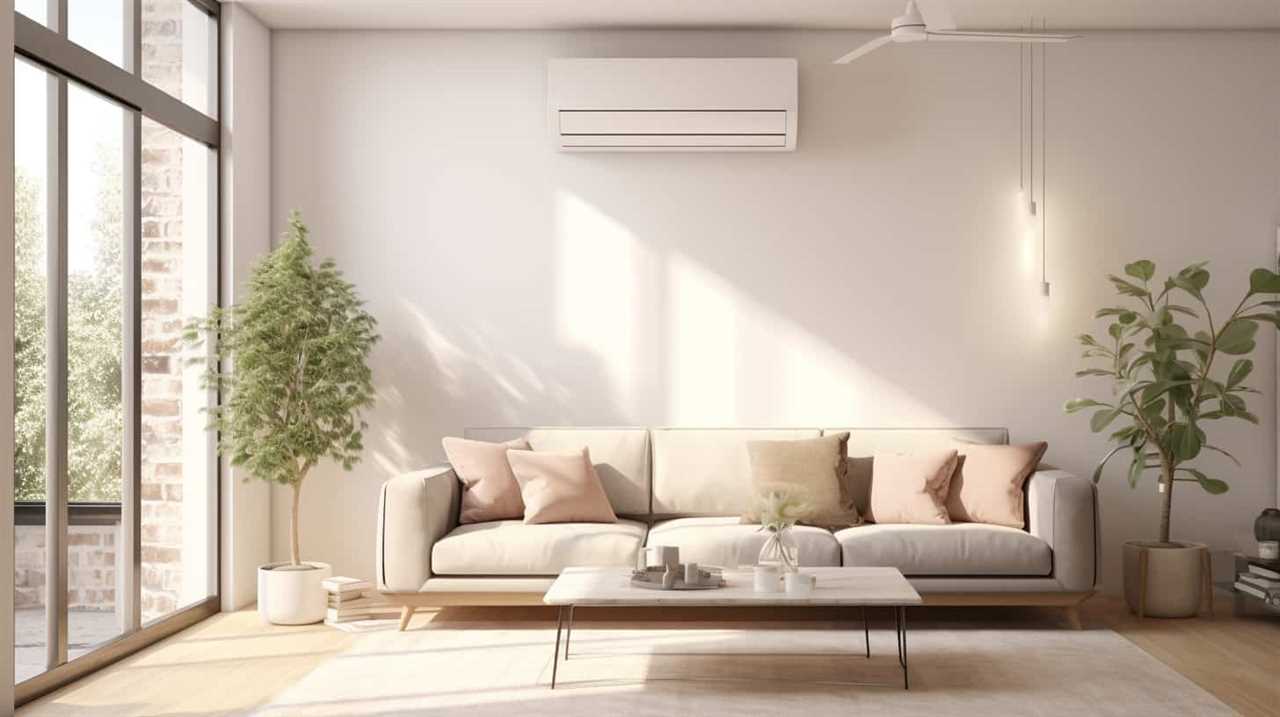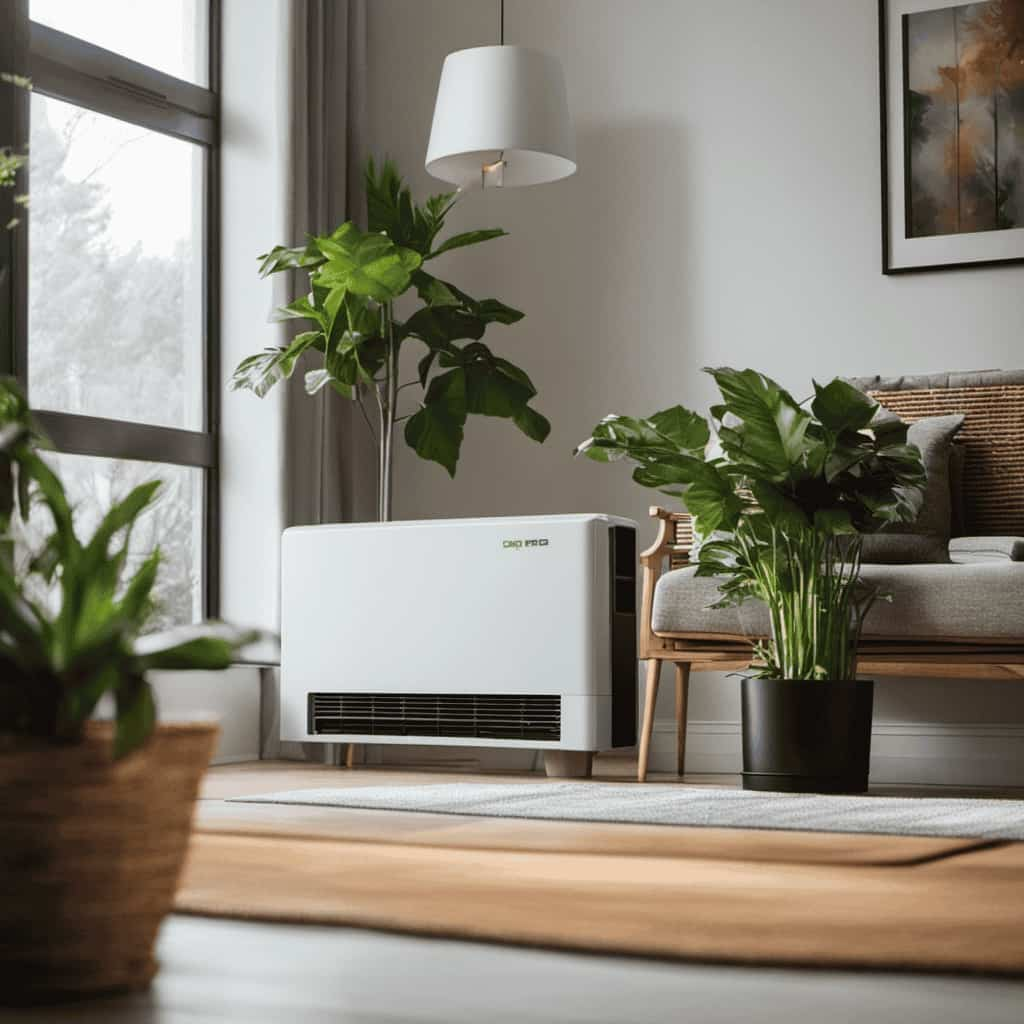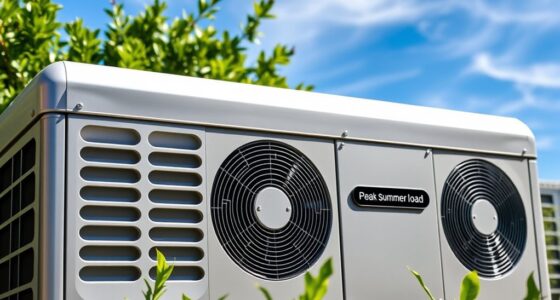Welcome to our expert guide on utilizing heat pumps for controlling the climate in your home. Think of us as your trustworthy advisors, committed to providing you with the knowledge and recommendations needed to make informed decisions when it comes to heat pump options.
In this comprehensive article, we will explain the benefits of heat pumps, how they work, and guide you in choosing the right size for your home.
We’ll also delve into energy efficiency, maintenance, troubleshooting, and advanced features.
Let’s dive in and explore the world of heat pumps together.
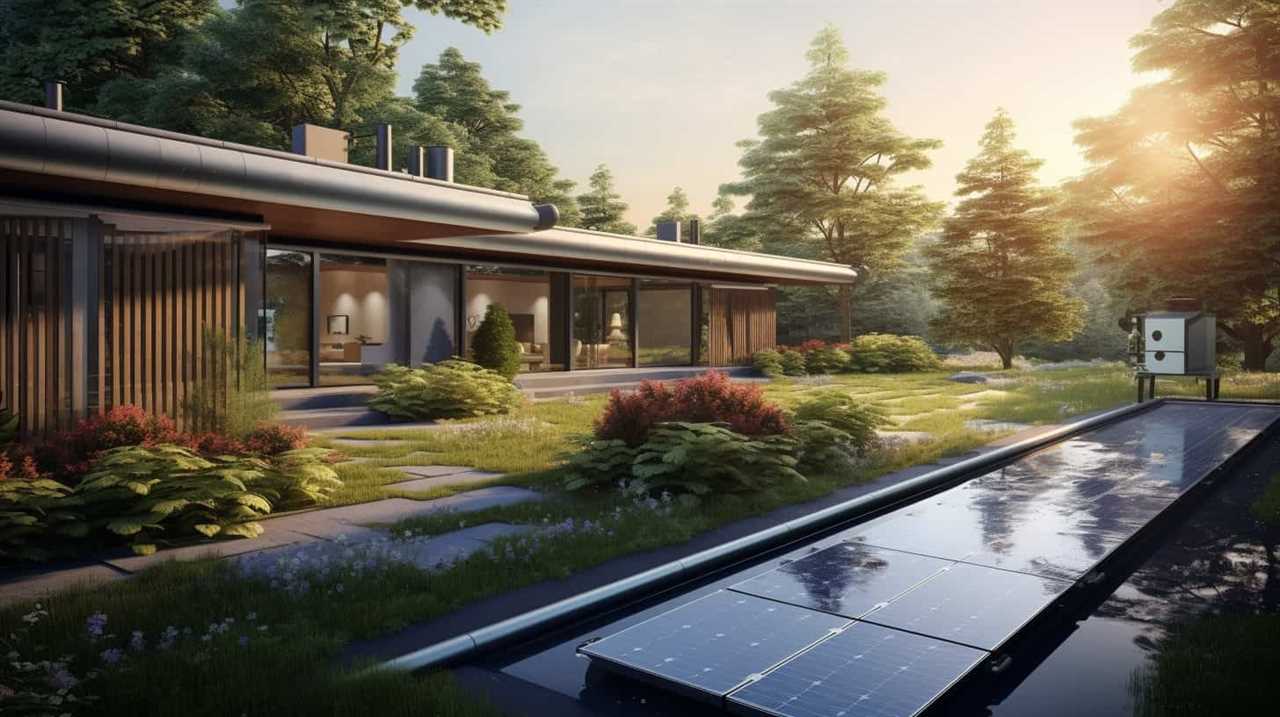
Key Takeaways
- Heat pumps significantly reduce energy consumption and offer both heating and cooling capabilities.
- Proper size and type selection, as well as professional installation, are important for optimal performance and efficiency.
- Accurate calculation of heating needs, considering factors such as home size, insulation levels, and climate conditions, is crucial when choosing the right size heat pump.
- Heat pumps provide lower energy bills compared to traditional systems, contribute to environmental sustainability, and offer long-term cost effectiveness as a wise investment.
Benefits of Heat Pumps for Residential Climate Control
One of the main benefits of heat pumps for residential climate control is that they can significantly reduce energy consumption. Heat pumps are highly efficient systems that transfer heat from one location to another, rather than generating heat like traditional heating systems. This process allows them to provide both heating and cooling capabilities.
When it comes to calculating cooling needs, heat pumps offer precise control over temperature settings, allowing homeowners to set their desired indoor temperature and maintain it consistently.
Additionally, heat pumps have installation considerations that need to be taken into account. It’s important to choose the right size and type of heat pump for the specific needs of the home, as well as to ensure proper installation by a qualified professional. This ensures optimal performance and efficiency, maximizing the benefits of heat pumps for residential climate control.
Understanding How Heat Pumps Work
We can gain a better understanding of how heat pumps work by examining the process of heat transfer and the role of refrigerant in the system.
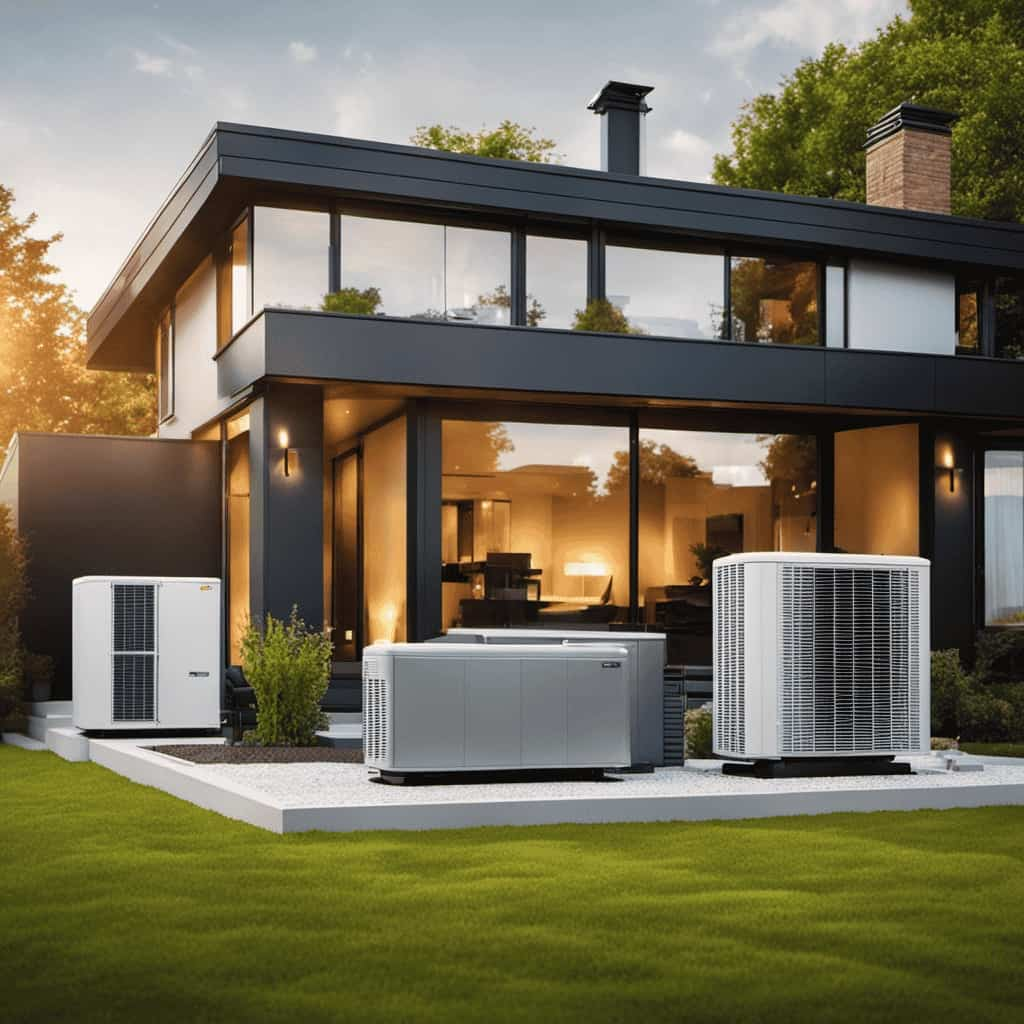
Heat pumps work by transferring heat from one location to another, using a refrigerant as a medium. In heating mode, the outdoor unit of the heat pump extracts heat from the outside air and transfers it to the indoor unit. The refrigerant, which is in a low-pressure state, absorbs the heat and evaporates into a gas.
The gaseous refrigerant then passes through a compressor, which increases its temperature and pressure. The hot refrigerant is then sent to the indoor unit where it releases heat into the indoor space.
In cooling mode, the process is reversed, with the heat being transferred from indoors to outdoors.
Understanding this process is essential for heat pump maintenance and troubleshooting heat pump issues. By having a clear understanding of how heat pumps work, homeowners can effectively maintain their systems and address any potential problems that may arise.

Choosing the Right Size Heat Pump for Your Home
When choosing the right size heat pump for your home, it’s crucial to calculate your heating needs accurately. This involves considering factors such as the size of your home, insulation levels, and local climate conditions.
Proper sizing is essential to ensure optimal performance and energy efficiency of the heat pump, as an undersized or oversized unit can lead to increased energy consumption and discomfort.
Calculating Heating Needs
Our main consideration when calculating heating needs is choosing the right size heat pump for our home. To ensure optimal efficiency and cost-effectiveness, we must carefully evaluate the heating requirements of our space. Here are some key points to consider:
Calculating Efficiency
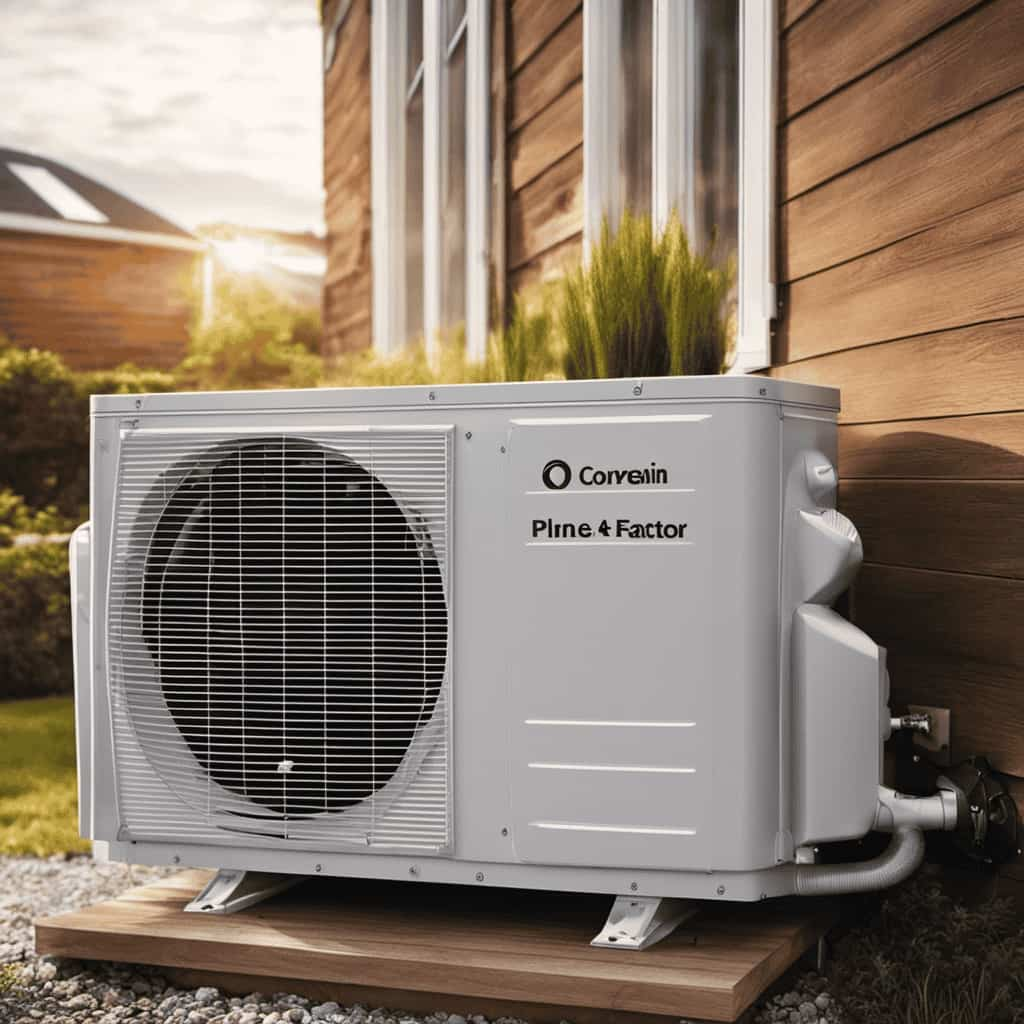
Assess the insulation levels of our home to determine the amount of heat loss.
Consider factors such as windows, doors, and ventilation that may affect heat transfer.
Comparing Costs
Evaluate the energy consumption and operating costs of different heat pump sizes.
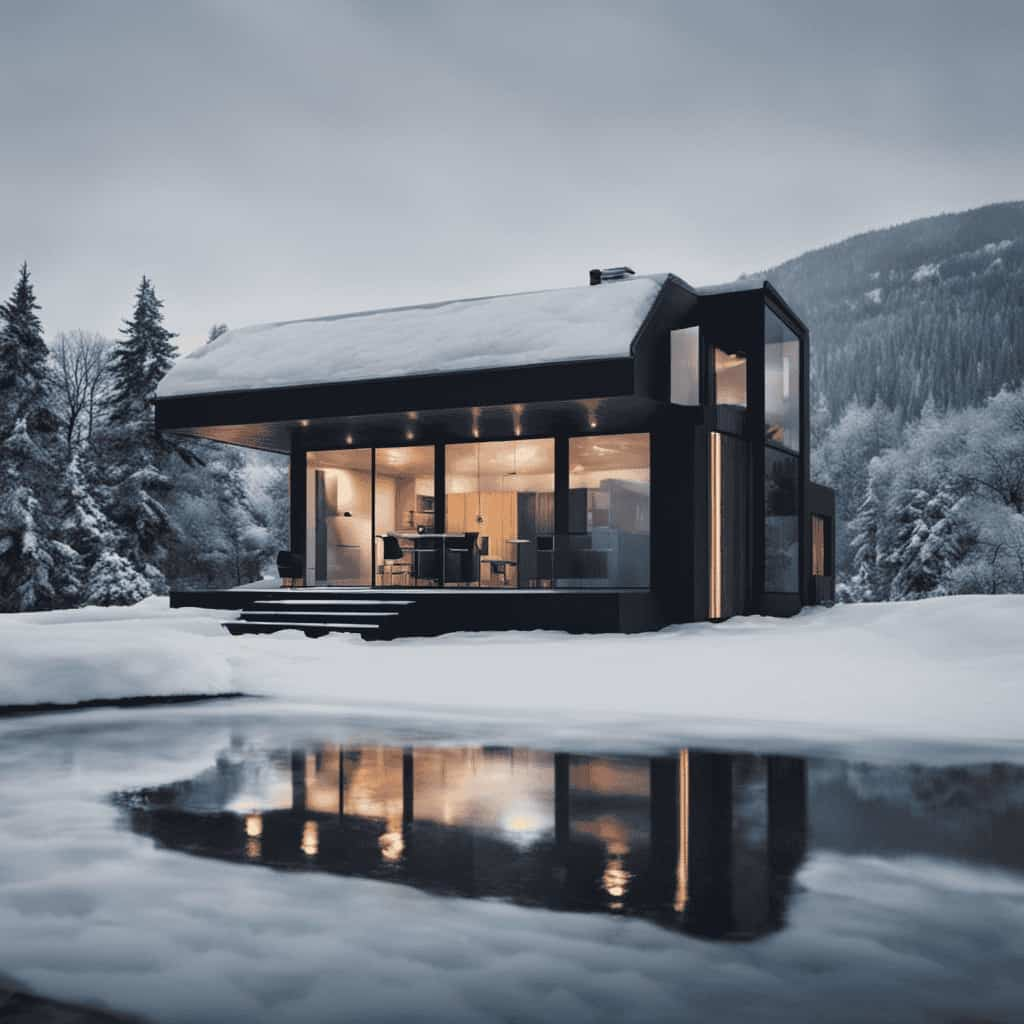
Consider the initial upfront cost in relation to long-term savings.
Proper Sizing Considerations
Considering the heating requirements of our space, it is essential to evaluate the efficiency and cost-effectiveness of different heat pump sizes. Proper sizing is crucial to ensure optimal performance and energy savings. However, there are sizing challenges that homeowners need to be aware of. One challenge is determining the correct size based on the specific climate considerations. Factors such as temperature extremes, humidity levels, and insulation quality can all impact the heat pump’s performance. To help you make an informed decision, here is a table outlining the recommended heat pump sizes based on climate zones:
| Climate Zone | Recommended Heat Pump Size |
|---|---|
| Mild | Small |
| Moderate | Medium |
| Cold | Large |
Energy Efficiency and Cost Savings With Heat Pumps
When it comes to energy efficiency and cost savings, heat pumps offer several advantages.
Firstly, they can significantly lower energy bills compared to traditional heating and cooling systems. This is because heat pumps transfer heat rather than generating it, resulting in reduced energy consumption.

Additionally, heat pumps contribute to environmental sustainability by using renewable energy sources such as air or ground heat.
Lastly, while the upfront cost of installing a heat pump may be higher, their long-term cost effectiveness makes them a wise investment for homeowners.
Lower Energy Bills
By using heat pumps for residential climate control, we can significantly reduce energy bills and enjoy the benefits of increased energy efficiency and cost savings.
Heat pumps are a smart choice for homeowners looking to reduce their carbon footprint while maximizing energy savings. Here are two key ways that heat pumps help lower energy bills:

Efficient operation: Heat pumps use electricity to transfer heat from the air or ground, rather than generating it themselves. This results in significantly lower energy consumption compared to traditional heating and cooling systems. By leveraging renewable energy sources, heat pumps can help homeowners save on utility costs while reducing their environmental impact.
Energy-saving features: Heat pumps often come equipped with energy-saving features such as programmable thermostats and variable-speed compressors. These features allow homeowners to optimize temperature settings and adjust system performance based on their specific needs. By efficiently managing energy usage, heat pumps help homeowners lower their energy bills without sacrificing comfort.
Environmental Sustainability Benefits
We can achieve significant environmental sustainability benefits by using heat pumps for residential climate control. Heat pumps are highly efficient systems that can provide both heating and cooling for homes. By extracting heat from the air or ground and transferring it to the indoor space, heat pumps reduce the need for fossil fuel consumption, resulting in lower greenhouse gas emissions.
Additionally, heat pumps can be integrated with renewable energy sources, such as solar panels, further reducing carbon footprint and dependence on non-renewable energy. The energy efficiency of heat pumps also translates into cost savings for homeowners, as they require less energy to operate compared to traditional heating and cooling systems.
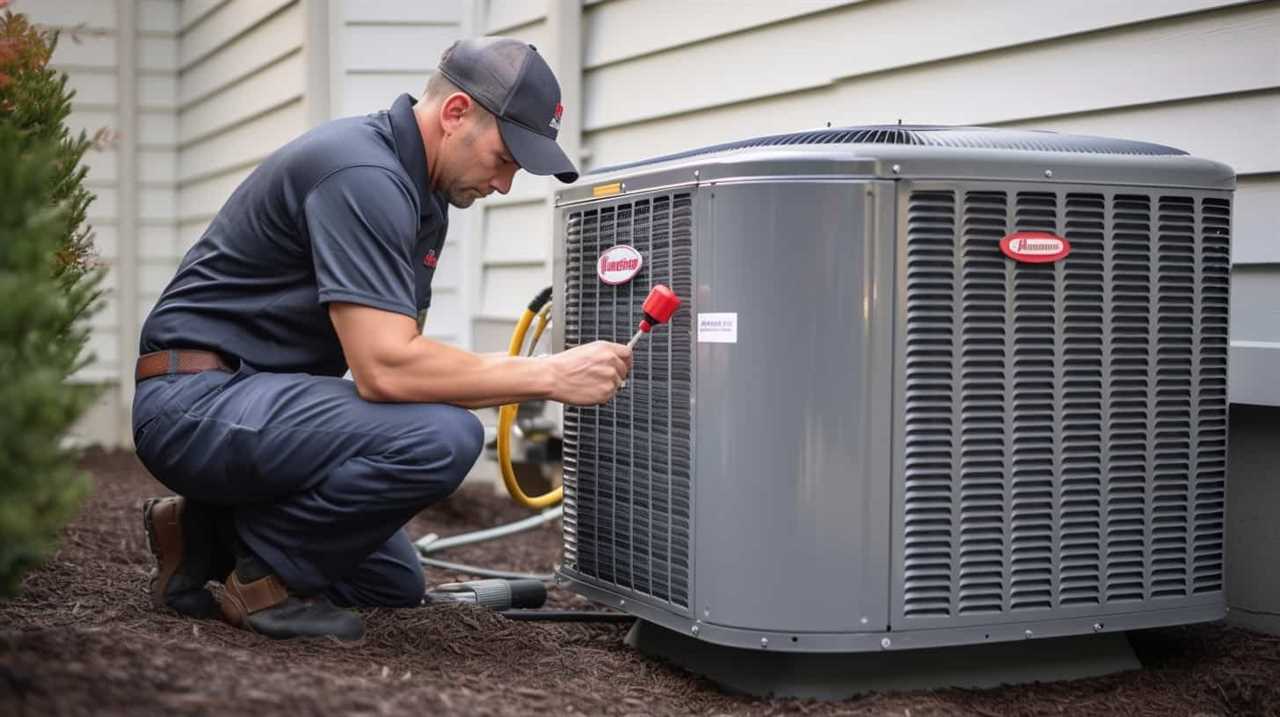
Long-Term Cost Effectiveness
The cost effectiveness of heat pumps in the long term is evident through their energy efficiency and potential for cost savings. When considering the life cycle of a heat pump, it’s clear that the initial investment can be recouped over time through reduced energy consumption and lower utility bills. Here are some key points highlighting the long-term cost effectiveness of heat pumps:
Energy Efficiency:
Heat pumps are highly efficient in converting electricity into heat or cool air, resulting in lower energy usage and reduced utility costs.
They can achieve a high coefficient of performance (COP), meaning they produce more heat or cooling per unit of energy consumed.
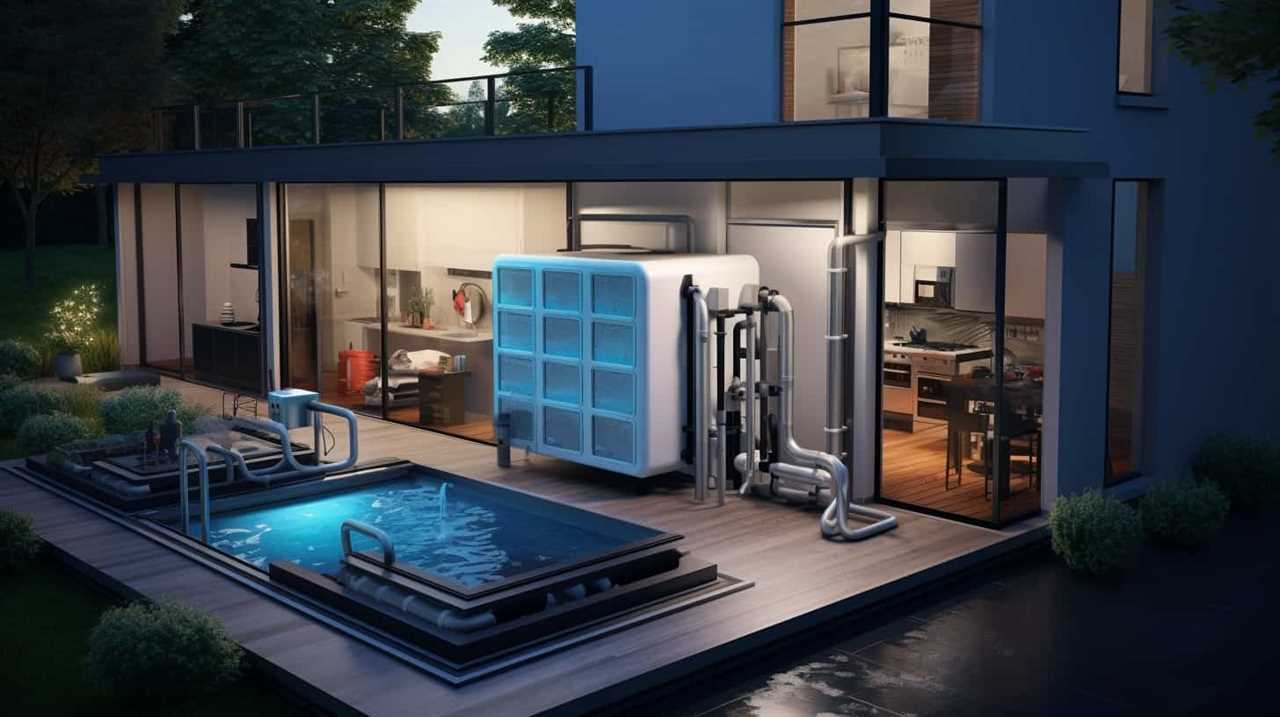
Cost Savings:
Heat pumps can significantly lower heating and cooling costs compared to traditional HVAC systems, especially in regions with moderate climates.
The return on investment (ROI) for heat pumps can be achieved within a few years, depending on factors like energy prices and usage patterns.
With their energy efficiency and potential for cost savings, heat pumps offer a compelling long-term solution for residential climate control. In the next section, we’ll explore how to maintain and troubleshoot these systems to ensure their optimal performance.

Maintaining and Troubleshooting Heat Pumps
To effectively maintain and troubleshoot heat pumps, homeowners should regularly clean and inspect the outdoor unit. This is crucial to ensure the efficient operation of the heat pump.
Here are some maintenance tips that can help homeowners keep their heat pumps in top shape.
First, regularly clean the outdoor unit by removing any debris, such as leaves or dirt, that may have accumulated. This will prevent airflow restrictions and ensure optimal performance.
Additionally, homeowners should check and clean the air filters regularly to prevent dust and dirt buildup, which can hinder airflow and reduce efficiency.

When troubleshooting heat pumps, homeowners should check for any unusual noises, such as grinding or squealing, as this may indicate a mechanical issue. It’s also important to check the thermostat settings and ensure that they’re properly adjusted.
If problems persist, it’s recommended to seek professional assistance to diagnose and resolve the issue promptly.
Enhancing Indoor Air Quality With Heat Pump Systems
One way to improve indoor air quality is by regularly changing the air filters in your heat pump system. This simple maintenance task helps to remove dust, pollen, and other allergens from the air circulating in your home.
In addition to changing the air filters, heat pump systems can also contribute to enhancing indoor air quality by incorporating air purification and ventilation solutions. Here are two key ways that heat pump systems can help improve the air you breathe:
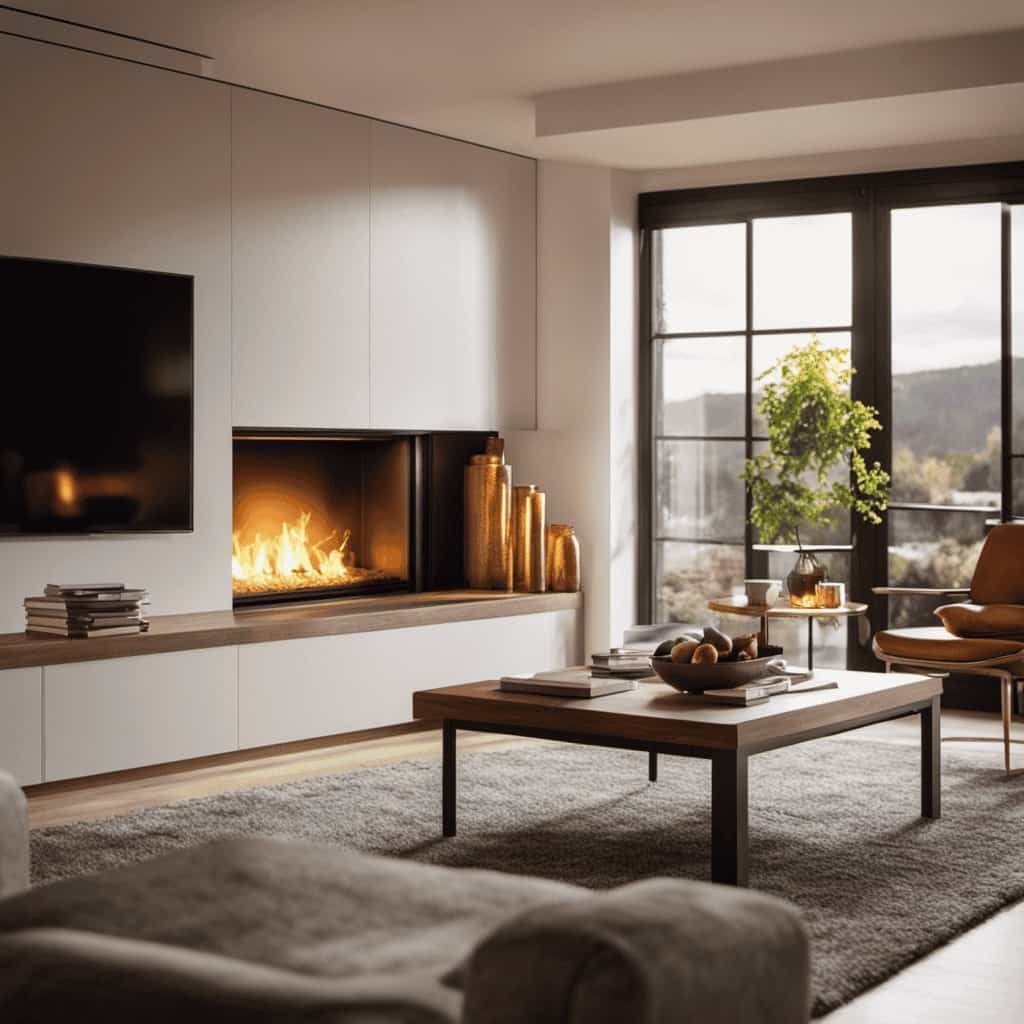
Air purification: Some heat pump systems are equipped with advanced air purification technology, such as built-in air purifiers or UV germicidal lamps. These features help to eliminate bacteria, viruses, and other harmful contaminants from the air, providing cleaner and healthier indoor air.
Ventilation solutions: Heat pump systems can be paired with ventilation systems that bring in fresh outdoor air and expel stale indoor air. This helps to remove indoor pollutants, control humidity levels, and maintain a constant supply of fresh air, contributing to better indoor air quality.
Exploring Advanced Features and Technology in Heat Pumps
To fully understand the capabilities of heat pumps, we must explore their advanced features and technology. Heat pump technology has evolved over the years, offering a wide range of advanced features that enhance their performance and efficiency. Let’s take a closer look at some of these features:
| Advanced Features | Benefits |
|---|---|
| Variable-speed | Provides precise temperature control and better energy efficiency. |
| Two-stage compressors | Allows the heat pump to operate at different levels of capacity, providing better comfort and energy savings. |
| Smart thermostats | Enables remote control and scheduling, optimizing energy usage and providing convenience. |
These advanced features not only improve the performance of heat pumps but also enhance user experience and energy efficiency. With variable-speed technology, heat pumps can adjust their speed according to the desired temperature, resulting in better comfort and reduced energy consumption. Two-stage compressors allow heat pumps to operate at lower capacities during milder weather, saving energy without compromising comfort. Smart thermostats provide convenience and control, allowing users to adjust settings remotely and schedule temperature changes, further optimizing energy usage. By incorporating these advanced features, heat pump technology continues to evolve, offering more efficient and customizable solutions for residential climate control.
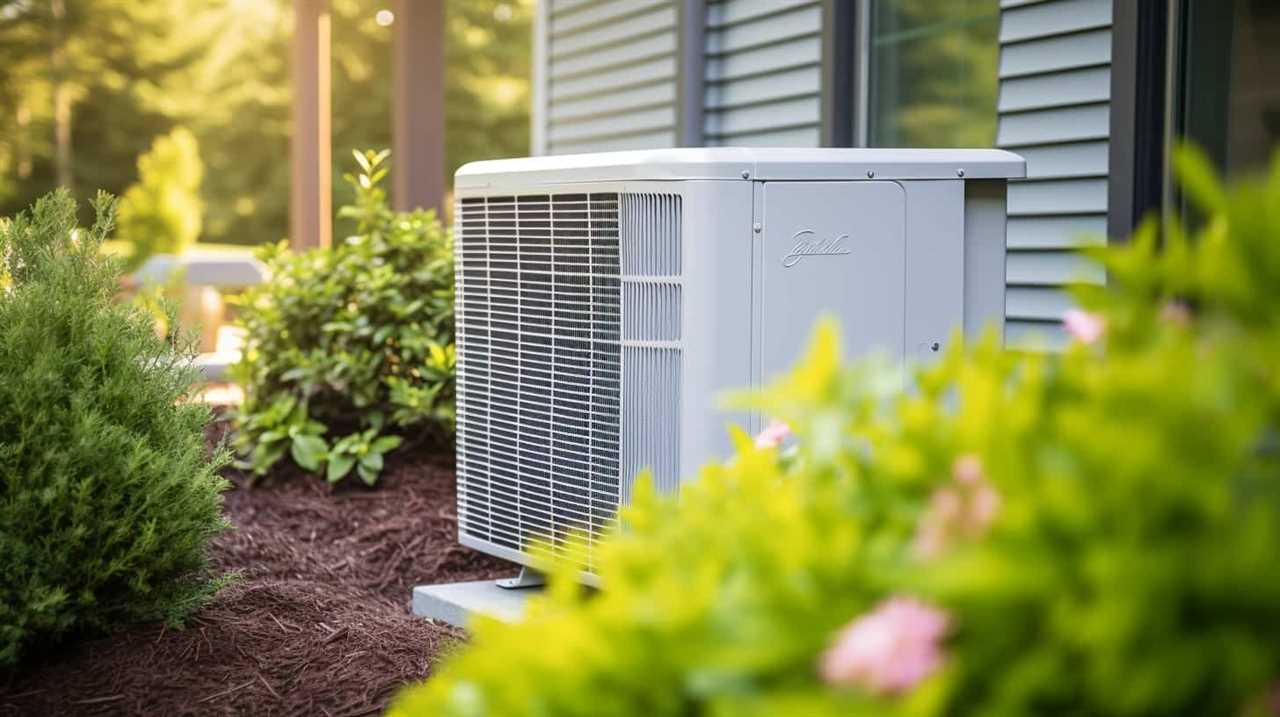
Frequently Asked Questions
Are Heat Pumps Suitable for All Types of Residential Climate Control Systems?
Yes, heat pumps are suitable for all types of residential climate control systems. They offer high residential energy efficiency and numerous benefits such as cost savings and environmental friendliness.
What Are Some Common Maintenance Issues That Homeowners May Encounter With Heat Pumps?
Common troubleshooting tips for heat pumps include checking the thermostat settings, cleaning or replacing filters regularly, and ensuring proper airflow. Preventative maintenance measures such as annual inspections and cleaning can help prevent future issues.
Can Heat Pumps Be Used in Extreme Weather Conditions, Such as Extremely Cold or Hot Climates?
Heat pumps can be used in extreme weather conditions like extremely cold or hot climates. The energy efficiency of heat pumps varies depending on the climate, but they are designed to provide efficient heating and cooling.
Are There Any Additional Costs Involved in Installing a Heat Pump System, Apart From the Purchase and Installation Costs?
There may be additional expenses involved in installing a heat pump system, such as the cost of regular maintenance, repairs, and energy usage. These hidden costs should be taken into account when considering a heat pump for residential climate control.

Can Heat Pump Systems Be Integrated With Existing HVAC Systems in a Home?
Yes, heat pump systems can be integrated with existing HVAC systems in a home. This integration offers several benefits, such as increased energy efficiency and improved climate control throughout the house.
What Are the Key Features of Heat Pumps for Residential Climate Control?
Heat pumps for climate control are equipped with various key features that make them highly efficient for residential use. These features include variable speed compressors that provide precise heating and cooling, smart thermostats for optimal temperature control, and advanced filtration systems for improved indoor air quality. Additionally, heat pumps can be integrated with renewable energy sources, reducing both energy consumption and environmental impact.
Conclusion
In conclusion, heat pumps are a highly efficient and cost-effective solution for residential climate control. They provide both heating and cooling, ensuring year-round comfort for homeowners.
Like a well-oiled machine, heat pumps work tirelessly to maintain a comfortable indoor environment.
So, if you want your home to be as comfortable as a cozy cabin in the woods, consider investing in a heat pump system. It’s a smart choice that will keep you comfortable and save you money in the long run.
